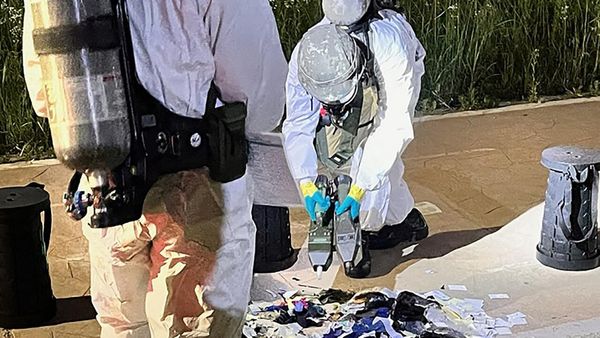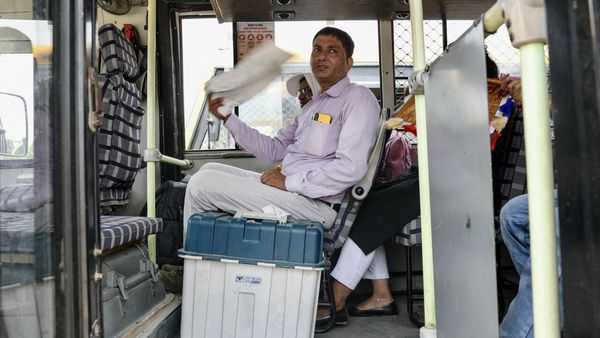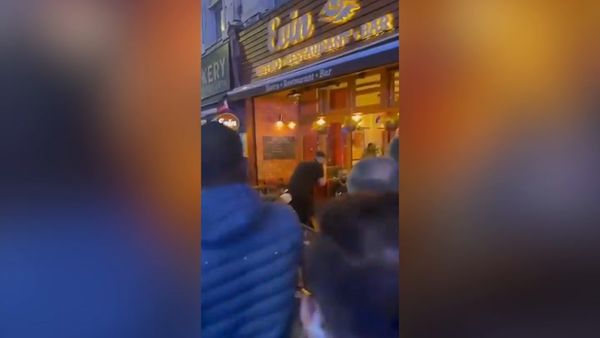
One must acknowledge that, as media strategists, the Bharatiya Janata Party and Narendra Modi are streets ahead of their opponents. It helps, of course, that they have a pliant mainstream media that is ever-ready to play along.
In this last fortnight, yet again, we have witnessed this play out. On April 21, Narendra Modi made a communally loaded speech while campaigning at Banswara in Rajasthan, where, among other things, he called Indian Muslims “infiltrators”. His speech was reported, but there was barely a murmur in mainstream media about it violating the Model Code of Conduct or even that it was not befitting the prime minister of a country to use such coarse and hate-filled language.
Since then, mainstream media seems to have become almost comatose, sitting back and merely reporting such speeches and their disturbing contents. Apart from Narendra Modi, his lieutenants like Home Minister Amit Shah, have also not held back with openly communal language used to attack opponents, as this report in The Telegraph illustrates. The objective of this line of campaigning is evident; it is to polarise the voting population along communal lines.
Also clear is the BJP’s determination to keep Modi the focal point of its campaign. To do this, not only is the Prime Minister rushing around the country speaking at meetings and doing road shows, all of which are prominently covered by most media, but for a man who has shunned the media since he was elected in 2014, he has gone on overdrive to grant “exclusive” interviews to newspapers and television channels. Like the interview he gave last month to Smita Prakash, editor-in-chief of the news agency ANI, these interviews are clearly scripted, with little scope for follow-up questions.
According to senior journalist Krishna Prasad, who posts on X under the handle Churumuri, in 30 days, Modi gave 26 interviews. He writes: “@narendramodi has given at least 26 ‘interviews’ in the last 30 days to newspapers, news channels and news agencies, revealing a staggering asymmetry of media coverage in favour of the BJP in the general elections. Timed to coincide with states going to the polls in various phases, the ‘interviews’ – undisguised plugs for the BJP, really – have received hours and hours of coverage that no opposition leader has enjoyed. ‘Interviews’ with newspaper groups have fetched the maximum returns: 6 pages in the @lokmat group; 4 pages in the @HindustanTimes group. Ditto TV networks, which broadcast in multiple languages on loop, and then get still more coverage on social media through the PM’s handles and handlers. In most languages, only one or two media outlets are chosen by @PMOIndia for the ‘interview’, but as befits a provincial #GujaratFirst mind, 5 Gujarati newspapers get the honour, including one that does not publish an e-paper.”
This media bombardment of “exclusives” does not suggest that Narendra Modi and his team have woken up to the fact that the media is an important institution in a democracy. Rather, it is part of a cleverly planned strategy to ensure that the face of the man who is the main selling point of the BJP continues to be prominent in all media. And the strategy has worked.
It is possible that the Prime Minister’s “resolve” that “I will not do Hindu-Muslim” is also a part of that strategy. On May 14, in an interview to the television channel News18 in Varanasi, Modi said: “The day I do Hindu-Muslim, I will be unworthy of public life.”
The next day, Indian Express ran this as its page one lead, while others reported it without giving it that much prominence. While the headline of the Indian Express story repeated Modi’s statement, the text of the story did mention his statement in the Banswara rally three weeks earlier that was clearly “Hindu-Muslim”. But most newspapers, barring the Telegraph, did not remind readers that Modi had in fact been playing the “Hindu-Muslim” card in multiple election speeches.
.png)
The hesitation by most mainstream media to give the other side of the story when it involves the Prime Minister is now a given. Hindustan Times did comment on the statement in its editorial on May 16. But instead of reminding readers that what Modi said was not supported by his most recent election speeches, it suggested that his comment should “guide the election campaign”.
While reports on speeches by star campaigners form the bulk of election coverage, with headlines either highlighting statements made by these politicians or predictions by them about how many seats they will win or how badly their opponents will fare, some stories stand out as different. They tell us about the India that continues to be invisiblised by much of the media. They convey voices that are rarely heard, not even during elections.
Take this story in The Hindu by Purnima Sah. She reports on Adivasis living in the Satpura range in Maharashtra’s Jalgaon district who still have no running water or pucca houses. They tell her that they know it is their duty to cast their vote, but they do not know whether that will make a difference to their lives. Most of them have not heard of the Modi government’s schemes promising them houses and water supply. One of them tells the reporter, “We are surprised to hear that there are government schemes where people get water and a pucca house.” The other reason they say they will vote is because they are afraid that if they do not, the forest department might force them to move from the land on which they have lived for generations.
The experience of Adivasis living just 46-km from Nashik is almost identical. No running water or electricity. And like their counterparts in Jalgaon district in the story mentioned above, a daily wage labourer tells the reporter from The Hindu that he is afraid that if he does not vote, he will be declared dead: “We are scared that if we do not vote, the government will strike off our names from their documents and declare us dead. If that happens, then our existence will be in danger. What will happen to our family then?”
These stories remind us why the vote is so important to the poorest, who otherwise do not feel they count, even as every political party makes promises to look after their interests. They also tell us how, more than 76 years after India became independent, these black holes of misery persist. They remain invisible because we in the media do not make that additional effort to reach out and uncover this India, one that is more real than the glitter and power displays that dominate the media scene.
Newslaundry is a reader-supported, ad-free, independent news outlet based out of New Delhi. Support their journalism, here.






